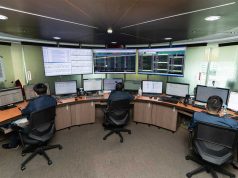DoF says NFA had access to enough cash, credit to buy rice
By Elijah Joseph C. Tubayan, Reporter
THE DEPARTMENT of Finance (DoF) said that the National Food Authority (NFA) had sufficient cash to buy palay, or unmilled rice, from domestic farmers while also settling its debt.
In a statement yesterday, the DoF said that it wrote a letter to NFA administrator Jason L.Y. Aquino detailing the funding available for the procurement of palay, on top of the government’s subsidy.
“A review of the NFA’s cash position, without taking into account the P2.09 billion NG (national government) subsidy, also confirmed that the NFA had a cash balance of P1.3 billion as of March 2017, which dropped to P1.2 billion as of end-June 2017; and available NG-guaranteed facilities of P3.58 billion as of March 2017, which fell to P2.1 billion as of end-June 2017,” the DoF said in a statement.
“Our analysis further shows that the NFA had ample resources coming from cash balances and available credit facilities, even without considering the subsidy receipts and uses, to procure the projected volume of local rice at least up to the third quarter under its May projection submitted to the DoF,” Finance Assistant Secretary Soledad Emilia F. Cruz was quoted as saying.
The NFA’s Mr. Aquino has said that the agency used P5.10-billion worth of funding in 2017 to help service debt, leaving it with inadequate funds to build up rice stocks.
Of the P5.10-billion, P3.01 billion was used to settle accounts with the Bureau of the Treasury (BTr), leaving a balance of P2.09 billion, according to the DoF.
“This P2.09 billion from the subsidy fund could have been rolled over and used to procure more rice… but instead, the DoF found out that the agency used the money to pay for its short-term credit facility with the Land Bank of the Philippines (LANDBANK) and the Development Bank of the Philippines (DBP),” the DoF said.
The DoF added that the NFA had a P5.4-billion advance from the government to cover the agency’s debt payments, “that was favorably endorsed by the DoF to the BTr.”
“This amount was for the NFA’s obligations that matured in October and November of that year, so that available NG-guaranteed credit facilities could be utilized to augment funds for rice procurement.
The NFA is mandated to stabilize rice prices by managing supply while also providing a floor price for rice procured from domestic farmers.
It also imports rice, with a mandate to maintain a buffer stock sufficient for 15 days’ worth of demand at all times, and not less than 30 days for the lean months.
Inflation rose to 6.4% in August from 5.7% in July and 2.6% a year earlier, driven partly by higher rice prices as low-cost NFA rice disappeared from the market. Prices of food and non-alcoholic beverages rose 8.4% year-on-year.
“Despite the availability of funds, in the second quarter of 2017 (April-June), when the NFA reported that its buffer stock was approaching critical levels, the actual palay procurement was only 6,331 MT (metric tons) versus the estimate of 22,552 MT, which was submitted by NFA to the DoF in May 2017,” Ms. Cruz said.
In the second half, the total palay procured was 13,714 MT, well below the 151,129 MT projection that the NFA submitted to the DoF for the same period.
The DoF added that the NFA relied heavily on rice imports rather than buying from local farmers.
The Finance department asked the NFA to explain the drop in actual palay procurement as against projections for the second quarter of 2017; the decline in procurement turnout for the rest of the year; the drop in the share of domestic rice procurement; and its failure to roll over its NG-guaranteed facilities to make funds available for rice procurement.
The NFA has yet to respond to queries at deadline time.
The Cabinet’s Economic Development Cluster also ordered “immediate reforms” on Wednesday to deal with the rice shortage, including the release of two million sacks of rice in NFA warehouses, the importation of five million sacks, targeted delivery of supply, and the streamlining of licensing procedures for rice imports.
It also urged the Senate to approve of the Rice Tariffication bill within the month to allow private traders to import rice more freely.



